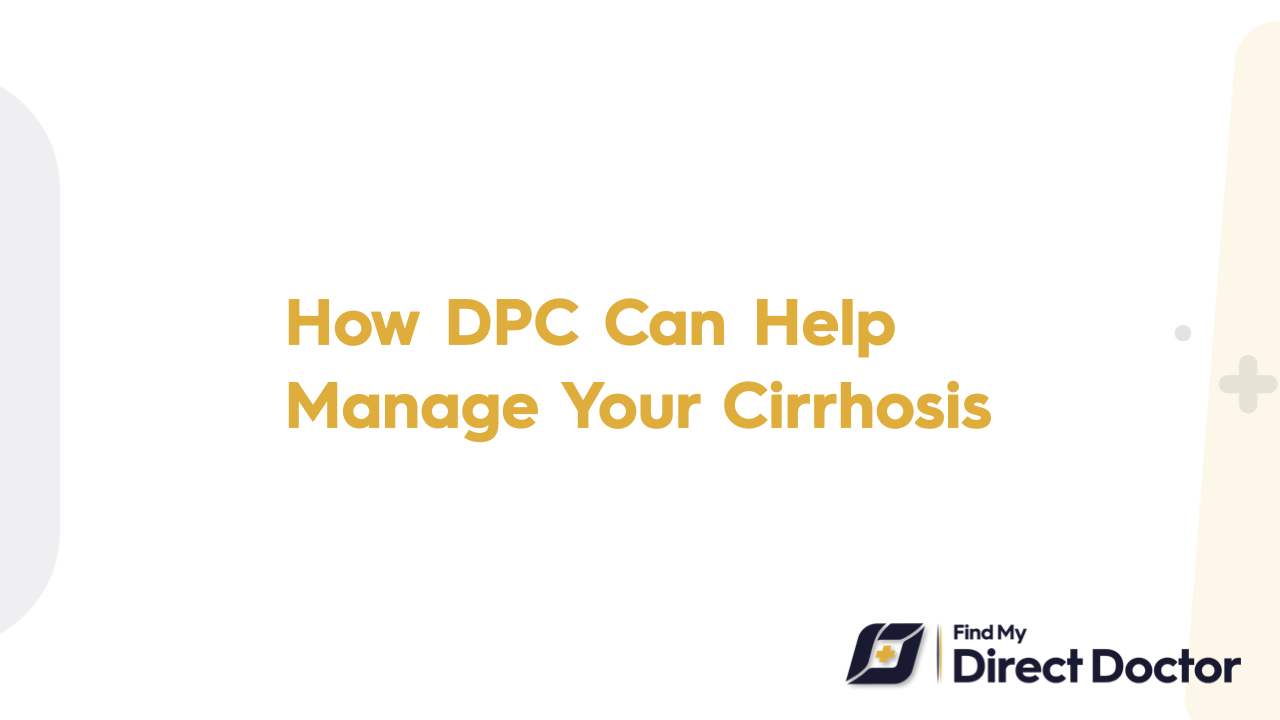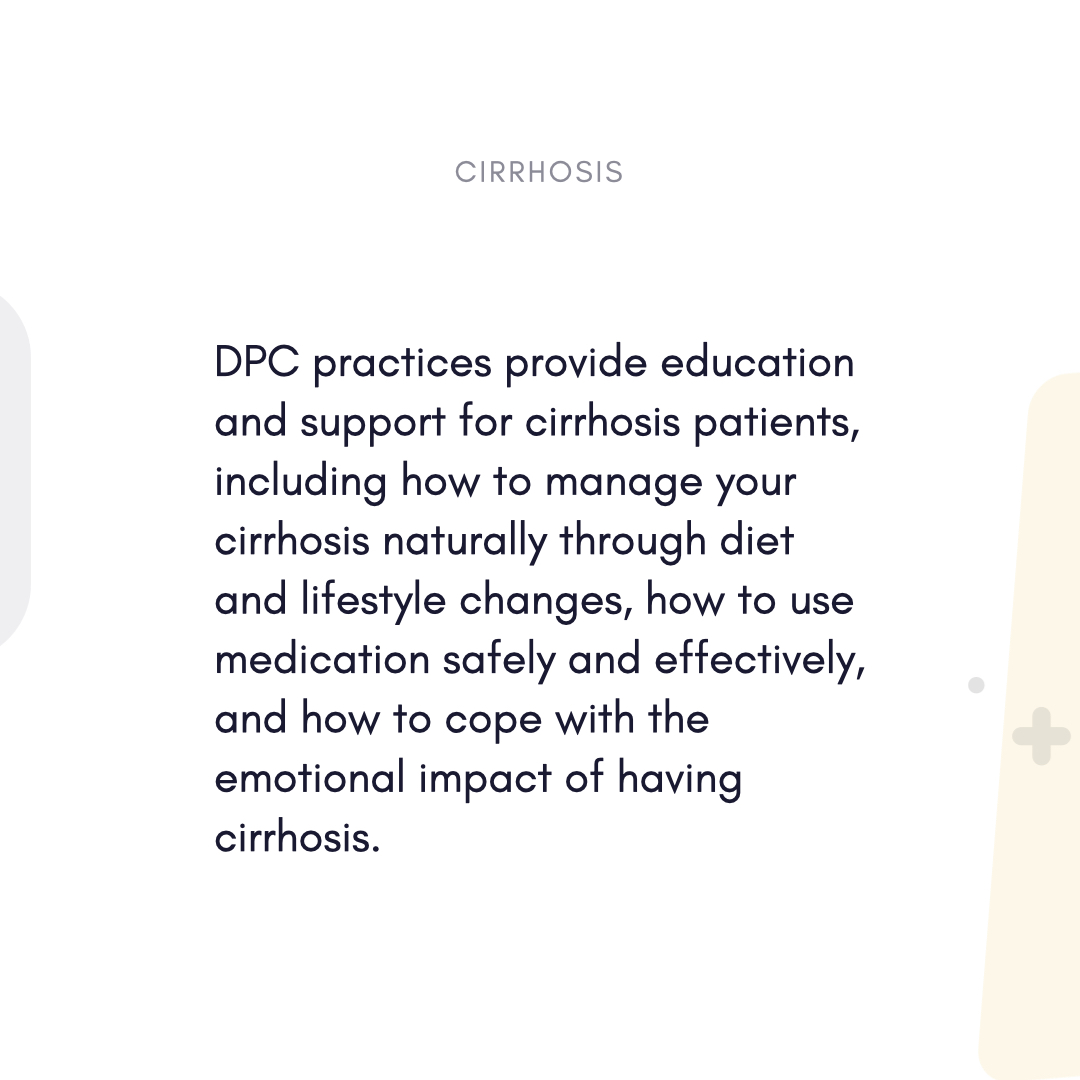Cirrhosis and Direct Primary Care (DPC): Optimizing Liver Health Through Personalized Care
Late-stage liver disease known as cirrhosis permanently scars and disrupts vital functions including metabolic control, detoxification, and protein synthesis. From jaundice to fluid retention (ascites), and confusion (hepatic encephalopathy), symptoms range and call for careful, continuous control. Emphasizing accessibility and continuity, Direct Primary Care (DPC) offers a proactive framework to slow disease progression, lower complications, and improve quality of life for cirrhosis patients.

DPC’s Enhancement in Cirrhosis Management (Proactive Monitoring)
- Track disease progression via regular bloodwork (liver function tests, INR) and imaging (ultrasounds).
- Adjust medications (diuretics, beta-blockers) and intervene early for complications like portal hypertension or malnutrition.
- Use telehealth or same-day visits (vs. ER trips) to manage acute issues (infections, sudden ascites).
Holistic Care Coordination (Multidisciplinary Teams)
- Collaborate seamlessly with hepatologists, dietitians, and mental health professionals.
- Address comorbidities like alcohol use disorder, depression, or anxiety common in chronic liver disease.
- Studies show coordinated DPC care lowers mortality and reduces 30-day/12-month hospital readmissions.
Tailored DPC Methodology for Cirrhosis (Cleveland Clinic-Aligned)
- Complication prevention:
- Low-sodium diets, medication optimization, and specialist referrals to avoid variceal bleeding/ascites.
- Monitor cognitive changes and adjust lactulose/rifaxine regimens for hepatic encephalopathy.
- Dietary action plans: Balance protein/micronutrients to combat muscle wasting and fluid retention.
- Hepatotoxin avoidance: Counsel against alcohol, NSAIDs, and unverified supplements.
- Infection prevention: Administer vaccines for influenza, pneumonia, and Hepatitis A/B.
Alcohol Cessation Support (Behavioral & Medical Therapies)
- Offer medication-assisted therapy (e.g., naltrexone) and behavioral counseling for alcohol-related cirrhosis.
- Integrate palliative care and goal-aligned strategies for end-stage disease management.
Why DPC Reduces Cirrhosis Costs? (Financial Transparency)
- Flat monthly fees (USD 50–150) eliminate copays/surprise bills for medications, labs, and consultations.
- Long-term provider-patient relationships foster trust and proactive care, reducing fragmented treatment.
- Regular testing and lifestyle adjustments prevent decompensation per American College of Physicians guidelines.
Limitations (Key Considerations)
- DPC does not replace insurance for transplants, hospital stays, or specialized interventions.
- Complex cases may require multidisciplinary teams beyond DPC’s scope.
Final Thoughts (Empowering Liver Health)
- DPC bridges gaps in conventional cirrhosis care via holistic support, continuous monitoring, and personalized treatment.
- Prioritizes early intervention and accessibility to reduce hospitalizations, manage complications, and empower patients.
- Partnering with a DPC provider experienced in chronic liver disease can optimize outcomes through proactive, patient-centered strategies.






